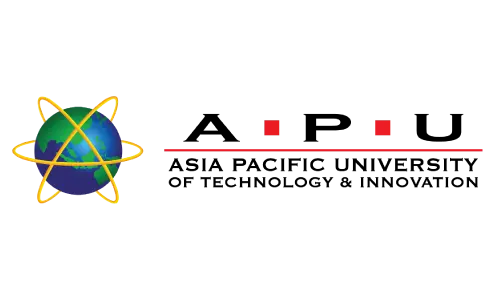
Bachelor of Science (Hons) in Information Technology with a specialism in Business Information Systems



| Yearly Tuition fees | |||
|---|---|---|---|
| Year | Fee | ||
| 1st Year | MYR 33,600 | ||
| 2nd Year | MYR 34,800 | ||
| 3rd Year | MYR 36,200 | ||
| Other Fees | |||
|---|---|---|---|
| Description | Fee | ||
| Library & Personal Bond Deposit (Refundable) | MYR 1,500 | ||
| University Administrative Fees | MYR 6,500 | ||
| Visa and Insurance | MYR 3,350 | ||
Embark on a transformative journey with APU University Malaysia Bachelor's (Hons) in Information Technology with a specialism in Business Information Systems program. Explore a myriad of invaluable insights and skills, detailed below:
In the first year, students will acquire fundamental skills required for IT professionals. They will develop a basic understanding of the underlying computer system, including Computer Architecture, operating systems, networking, and databases. Specialized modules will introduce them to web development and programming, providing them with a foundation in these areas. Alongside technical knowledge, the curriculum will focus on developing personal and organizational skills, as well as nurturing creativity and innovation. By the end of this level, students will have a strong foundation in IT fundamentals, computer systems, web development, and programming.
Moving into the second year, students will broaden their skills and knowledge in the field of information technologies. They will gain a better understanding of the broad range of information technologies and acquire specialized skills to apply frameworks and planning techniques for the strategic management of information systems. The curriculum will emphasize the role of information systems in supporting modern organizational operations. Creativity, innovation, and independent learning will continue to be nurtured to prepare students for the workplace. By the end of this level, students will have developed expertise in information systems, strategic management, and the support of business information systems.
During the 16-week internship or industrial training, students will have the valuable opportunity to apply their knowledge and skills in a real-world working environment. This practical experience will bridge the gap between theory and practice, preparing students for a smooth transition from the classroom to the professional world. The internship will allow them to enhance their skills, gain industry insights, and develop the necessary professional competencies.
In the third year, students will build upon the foundation of previous studies and industrial experience. Students will further extend their familiarity with business information systems and refine their personal and professional development. They will delve deeper into the development of business proposals that introduce the development, deployment, and business impact of information systems. The final year project will require them to investigate and develop a solution for a real-world problem, showcasing their ability to combine technical knowledge, critical thinking, and analytical skills. This project will result in the creation of a personal achievement portfolio. By the end of this level, students will have advanced their expertise in business information systems and demonstrated their abilities to solve complex real-world problems.
Students who joined Bachelor (Hons) in Information Technology with a specialism in Business Information Systems at APU University Malaysia will have the option to apply for the APU-DMU Dual Degree Scheme. Under this Scheme, students will be able to get 2 Degree Certificates & Transcripts upon graduation: 1 from Asia Pacific University (APU), Malaysia, and 1 from De Montfort University (DMU), UK. please note this is optional and costs GBP 375 Per year. For more information about this Scheme (Click here)
SPTM
• 2 Passes in STPM with minimum Grade C (GP 2.0) in any subject with a Credit in Mathematics at SPM.
For other qualifications and certificates (e.g., UEC, Foundation, STAM, etc..) please contact our educational consultants or submit your application for Admission assessment.
COMMON MODULES |
|
|
|
SPECIALISED MODULES |
|
|
|
COMMON MODULES |
|
|
|
SPECIALISED MODULES |
|
|
|
COMMON MODULES |
|
|
|
SPECIALISED MODULES |
|
|
|
The team typically replies in a few minutes.